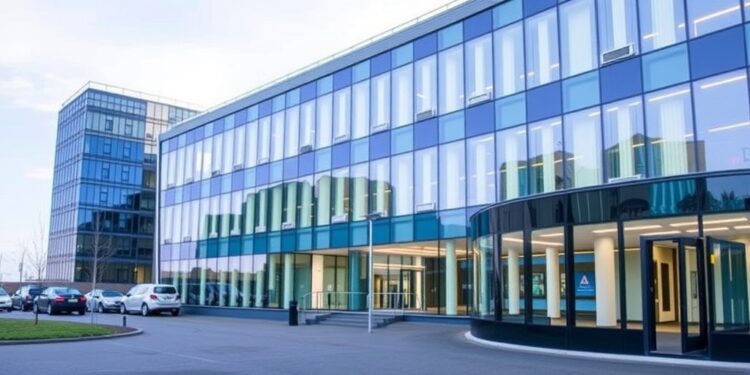In a poignant and urgent exploration of the dark undercurrents within the Roman Catholic Church, Goethe University Frankfurt has initiated a monumental research unit entitled “Power and Abuse in the Roman Catholic Church – Interdisciplinary Critique and Analysis.” This groundbreaking initiative aims to dissect the complex nexus of power and victimization that has emerged in a series of abuse scandals that have come to the forefront since 2010. Under the stewardship of Prof. Anja Middelbeck-Varwick, an esteemed scholar in both religious studies and Catholic theology, this research unit seeks to unravel the systemic vulnerabilities that have allowed abuse to proliferate within ecclesiastical structures.
The approval from the German Research Foundation (DFG) signifies a watershed moment that promises to galvanize scholarly inquiry across several disciplines. Emphasizing the need for a robust interdisciplinary approach, the initiative merges insights from theology, religious studies, philosophy, law, and educational sciences. This fusion of expertise is anticipated to yield nuanced understandings of how institutional frameworks can enable abusive power dynamics to flourish, silencing victims and perpetuating cycles of trauma.
The inquiry is meticulously structured into three interrelated clusters. The first cluster, entitled “Vulnerability and Systemic Conditions,” is dedicated to scrutinizing the factors that render individuals and institutions particularly susceptible to abuse. This exploration will involve rigorous analysis of psychological, sociological, and contextual elements that contribute to an environment conducive to exploitation. By understanding these vulnerabilities, the unit hopes to inform strategies for prevention and healing within the Church and beyond.
The second cluster delves into “Orders and Structures of Power,” where researchers will examine the institutional power dynamics at play within the Church. This investigation will not only dissect hierarchies and authority structures but will also consider the broader implications of these dynamics on congregational life and community interaction. It aims to shine a light on how entrenched power can warp the mission of the Church, transforming it from a sanctuary of spiritual guidance into a breeding ground for abuse.
The third cluster focuses on the “Theological Foundations of Power Imbalances and Abuse.” This segment of research will critically analyze the theological frameworks that have historically underpinned ecclesiastical authority and power. By interrogating these foundations, researchers will explore how certain theological interpretations may have inadvertently reinforced abusive structures and ideologies.
Prof. Anja Middelbeck-Varwick has articulated the pressing urgency of this research, pointing to the pervasive nature of power and powerlessness within the Church, particularly in light of the revelations surrounding abuse in Germany and elsewhere. The research unit is not merely an academic endeavor; it is a clarion call for accountability and reform. It aspires not only to shed light on the Church’s internal issues but also to contribute to a broader societal dialogue around power dynamics and the necessity for ethics and oversight in all institutions.
The implications of this research extend well beyond the ecclesiastical sphere. The unit’s findings are expected to serve as a critical resource for various sectors, including educational institutions, social services, and governmental bodies, in their own endeavors to combat and prevent abuse. The transferable knowledge gained from this interdisciplinary examination will ideally foster improved practices, policies, and protective measures within societies at large.
Complementing this initiative is the continuation of the Center for Advanced Studies titled “Polycentricity and Plurality of Premodern Christianities.” This research effort, which began in 2020 during the COVID-19 pandemic, aims to unveil the diverse and intricate tapestry of Christian groups leading up to the eighteenth century. This inquiry counters traditional historical narratives that tend to oversimplify the nature of early Christian communities, suggesting instead a vibrant landscape of “Christianities” that were dynamically shaped by interactions among various groups.
The center’s work has already produced significant scholarly output and engaged international cooperation, evidenced by the welcoming of displaced historians from Ukraine who brought their unique perspectives on religious diversity. The intricate interplay of faith, identity, and community engagement during these periods has the potential to inform contemporary discussions about religious affiliation and communal resilience in the face of adversity.
Furthermore, the second phase of this center’s endeavor will include a three-volume compendium aimed at encapsulating the religious, social, and cultural practices of premodern Christianities. This ambitious publishing project seeks to shed light on how these communities have evolved over time, contributing to our understanding of historical religious pluralism and social dynamics.
In anticipating the outcomes of these research initiatives, Prof. Bernhard Brüne, Vice President of Research at Goethe University, expressed his optimism. He stated that both the Research Unit and the Center for Advanced Studies each hold remarkable potential for enriching our comprehension of societal structures. He envisions these programs as catalysts for novel perspectives, creating opportunities for reflection on our shared past and shaping the pathways to our collective future.
In conclusion, the initiatives arising from Goethe University Frankfurt stand at the intersection of critical inquiry and societal reform. Through their commitment to addressing profound questions about power and abuse, both the Research Unit and the Center for Advanced Studies endeavor to generate insights that can transform our understanding of complex social dynamics and foster a more equitable landscape in both ecclesiastical and secular spheres.
Envisioning a future where the lessons learned from these investigations can help mitigate the impact of abuse and empower individuals, Goethe University is poised to lead a significant chapter in interdisciplinary scholarly discourse.
Subject of Research: Power and Abuse in the Roman Catholic Church
Article Title: Unraveling The Nexus of Power and Abuse: A Transformative Research Initiative at Goethe University
News Publication Date: October 2023
Web References: https://www.poly-unifrankfurt.de/
References: None
Image Credits: None
Keywords: Power dynamics, Catholic Church, abuse, interdisciplinary research, systemic abuse, theological frameworks, historical Christianities, social reform, accountability, religious studies.




